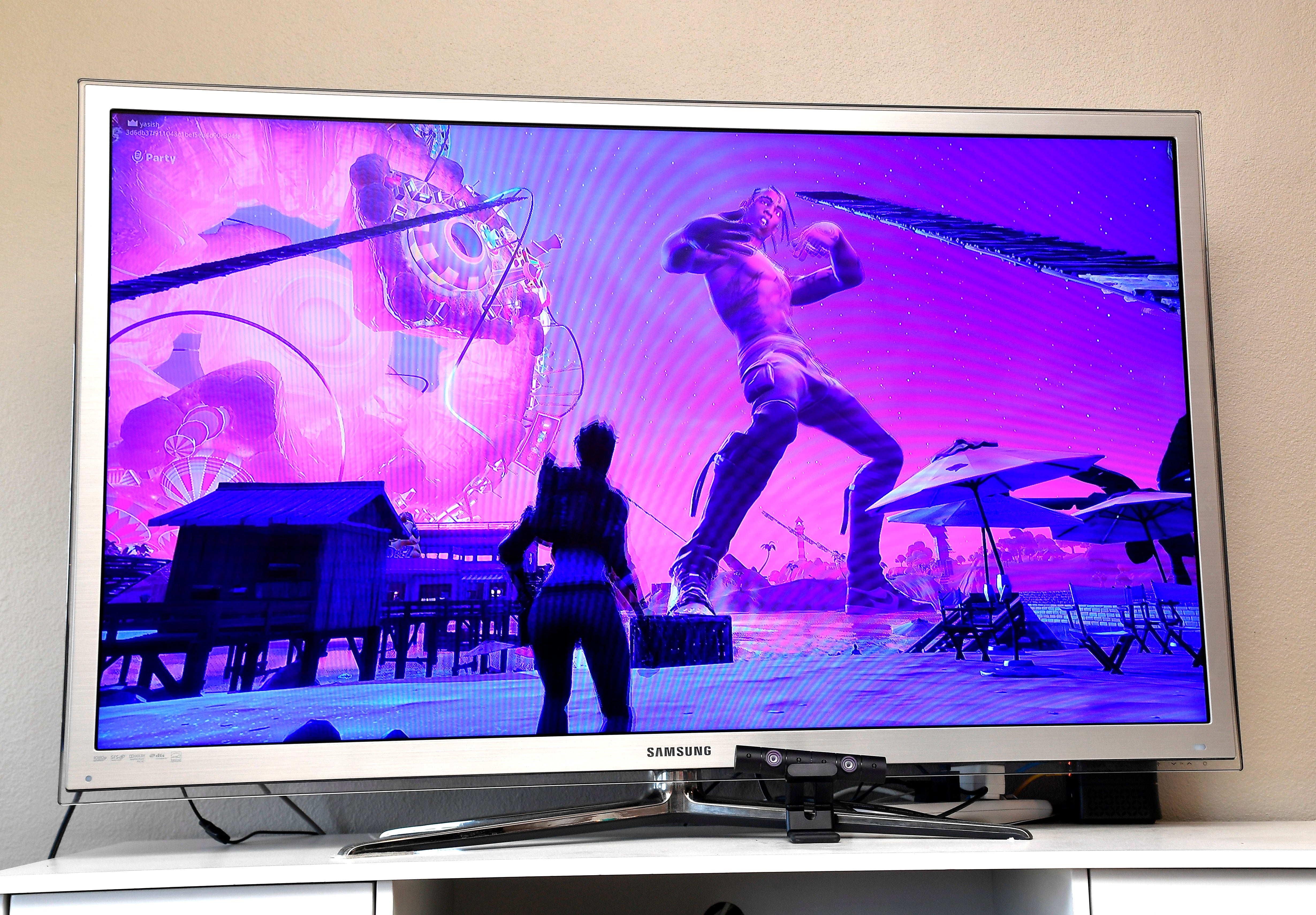Virtual insanity? Why the metaverse might be closer than you think
The past year has changed cultural attitudes towards virtual reality and now the race is on to bring us closer to a new digital reality. Amy Francombe talks to designers, entrepreneurs and young evangelists about what the matrix offers that the real world doesn’t

Your support helps us to tell the story
From reproductive rights to climate change to Big Tech, The Independent is on the ground when the story is developing. Whether it's investigating the financials of Elon Musk's pro-Trump PAC or producing our latest documentary, 'The A Word', which shines a light on the American women fighting for reproductive rights, we know how important it is to parse out the facts from the messaging.
At such a critical moment in US history, we need reporters on the ground. Your donation allows us to keep sending journalists to speak to both sides of the story.
The Independent is trusted by Americans across the entire political spectrum. And unlike many other quality news outlets, we choose not to lock Americans out of our reporting and analysis with paywalls. We believe quality journalism should be available to everyone, paid for by those who can afford it.
Your support makes all the difference.When I was a child, I always wanted to live in my dreams,” says 22-year-old crypto artist Moyosore Briggs. “When I got my phone, it was like, ‘OK, this is the first step.’” She has always been “strongly aware”, she says, that one day we’d be able to escape the everyday drudgery and exist in our imaginations – she just didn’t know it was going to be possible in her lifetime. But now that’s changing fast. “I’d say I’m about 10 per cent there already,” she continues, of how much she already operates in the virtual space. “But in 2050, I will be able to live in my dreams.”
Briggs might sound as if she’s wafted in on a cloud but she’s actually talking about the metaverse, also known as the mirror world, the AR Cloud or Web 3, which is the long-heralded successor to the world wide web. From video games like Fortnite, Roblox and Animal Crossing, to the omnipresent clasp of social media platforms, and especially the explosion of cryptocurrency and NFTs, the science fictional concept of an elaborate, all-encompassing digital world beyond the analogue one we live in is fast becoming realised.
As a Forbes article claimed last year, not only is the metaverse coming, “it’s a very big deal”, and tech giants are all getting onboard. According to reports, almost a fifth of Facebook employees are working exclusively on building their own one, after waxing a cool $2bn (£1.46bn) on acquiring virtual-reality headset company Oculus VR in 2014, while software developers are reported to be spending billions on cloud gaming – where games no longer need to run on a traditional console – over the next decade, backed by the belief that it will underpin our future.
So what is it? In practice, the metaverse is like a 3D version of the internet, where people will be able to enter a digital space completely virtually or interact with parts of it in their physical space with the help of augmented and mixed reality. We’ll be able to do it via virtual reality headsets, AR glasses or, if Elon Musk has it his way, through brain-computer interface devices.
For gamers, this kind of experience is practically par for the course now. In multiplayer games with detailed worlds, players can have an avatar, socialise, dress it in digital clothing, or even – as was the case with Fortnite – attend digital concerts headlined by chart-topping artists like Travis Scott and Ariana Grande. And if that sounds like a dystopian nightmare, metaverse evangelists believe that most of us will soon be spending an ever-increasing amount of time connected to persistent virtual worlds like these.
If you’re struggling to picture it, fear not – it’s kind of like communicating to someone in the early Eighties what the internet of 2021 would be like. However, this demonstration video of Facebook’s Horizon work metaverse platform is a pretty unnerving attempt to demystify the future, showing individuals put on a VR headset, their movements mimicked as a digital avatar in a cartoonish, 3D boardroom (complete with office paraphernalia such as memo boards and water coolers) acts out how your future business meetings might look.
What once sounded like a scene from The Matrix, however, is being increasingly embraced, especially during recent times. “If we step back three years ago, spending time making relationships in virtual worlds was stigmatised,” says Matthew Ball, a venture capitalist and a Mark Zuckerberg co-signed metaverse expert whom Virgil Abloh has tapped to develop a digital-only fashion brand.
But he says that attitudes have changed more recently, as people have sought new ways to find connection and interaction. “The pandemic has legitimised that kind of behaviour and also led to many new millionaires whose jobs and lives are specifically oriented around those spaces,” he continues.
This cultural shift has accelerated talk of the upcoming metaverse. Over the past two years, people have engaged with the internet in ways they never have previously, and it’s cross-generational. Cryptocurrencies have gone from a white tech bro-dominated space to a booming Gen Z side hustle that has birthed TikTok-famous teen financial advisors, while the abundance of free time in lockdown meant 62 per cent of UK adults played some form of video game in 2020. Over 12 million concurrent players tuned into Travis Scott’s immersive Fortnite concert – proof, if any was needed, that this could be the future of live entertainment.
Not everyone is convinced that the metaverse is the ultimate in convenience and signals a future utopia we can shape anyhow we want, however. “It depends who’s building it,” explains Brenda Romero, a Bafta-winning game designer. “If you or I built a house for ourselves, we would think of our needs first and not necessarily the needs of other people.
“It’s the same in virtual worlds – they’re built by the people for the same people,” she continues, alluding to her experiences designing games in the Eighties and Nineties. Even up to the Noughties, many games have hardly been progressive: the popular game Sims, for example, didn’t allow same sex couples among its avatars to marry until 2004.
As David Karpf pointed out in Wired, virtual reality, and the metaverse it presumes to enable, is a perennial “rich white kid technology”. After all, the term was first coined in Neal Stephenson’s 1992 dystopian book Snow Crash, where the fully realised digital world served as entertainment and an economic underworld to a desolate, violent-stricken America governed by corporate franchises. And although this is not quoted in Silicon Valley’s strategy announcements, talk of excessive advertising displays, workers being surveilled and branded entertainment within future metaverses doesn’t sound too far removed from its origin story. It’s why Romero strongly advocates that we need a “Betterverse”, which centres inclusivity and employs diverse developers to prevent history repeating.
Luckily, it appears that young people are welcoming stepping up to the plate, such as London-based Nigerian Briggs, whose NFT artworks exist solely on the web. “Every day when I’m waking up it feels like I’m waking up into the metaverse,” she exclaims. “I don’t wake up and think about, ‘Oh, what cafe am I going to go to?’ or, ‘Oh, what friends am I going to see?’ I think about the internet and how I need to speak to somebody who is in a different country but we can only meet in an art gallery that’s been built on the Ethereum blockchain.”

In the preliminary metaverse, Briggs has found community, opportunities and a thriving art career. Since graduating from university in 2020, she has become a spotlighted artist on leading NFT platform Zora, connected with like-minded artists across the world through Herstory Dao, a crypto collective that uplifts Black NFT artists, and had her artwork displayed on billboards in Times Square – all because of her involvement in the metaverse. She says there “just isn’t as much opportunity in the physical world” for up-and-coming creators and as a result “young people are feeling disillusioned with real life”.
It’s why the London-based experimental duo Paula Sello and Alissa Aulbekova, both in their early twenties, set up their digital fashion house in 2020. “We started Auro Boros because when we talked about the future, we heard very dystopian conversations and wanted to bring something that is not only positive and inclusive, but mindful of the current ecological state that we’re in,” says Sello.
They became the first luxury brand to show a digital-only, ready-to-wear collection at London Fashion Week last year and their cyber couture has now been digitally manipulated onto over two million images, which have been submitted by people who want to see themselves in their celestial, otherworldly designs.
“Digital fashion does not just have the potential to replace fast fashion; we’re solving a lot of issues that we’re currently facing in the fashion industry with overconsumption, general waste and exclusivity,” continues Aulbekova.
“It’s very standard for the kids to have phones,” adds Sello, “so there’s already all the tools to be part of the metaversal experience, whether that’s digital fashion or gaming at your fingertips.”
“The traditional fashion world, especially the luxury market, can be quite elitist,” interjects Aulbekova, who, having grown up in Kazakhstan, understands how hard geographical boundaries can be in pursuing your dreams. “The arrival of metaverse fashion will be a truly groundbreaking step for increasing inclusivity for so many industries.”
The last 18 months have been particularly bleak for young people. Under-35s accounted for almost 80 per cent of job losses during the pandemic, while research conducted by the UK’s Health Foundation found that 86 per cent of 22 to 26-year-olds felt their future careers have been negatively impacted by successive lockdowns. Talk about a dystopian nightmare – we’re living in one already. Instead, the metaverse could be a third reality where young people can find paid work, make important change like making fashion more sustainable and escape into more fantastical realities that they actually have more control over. Right, I’m going down the virtual pub.



Join our commenting forum
Join thought-provoking conversations, follow other Independent readers and see their replies
Comments